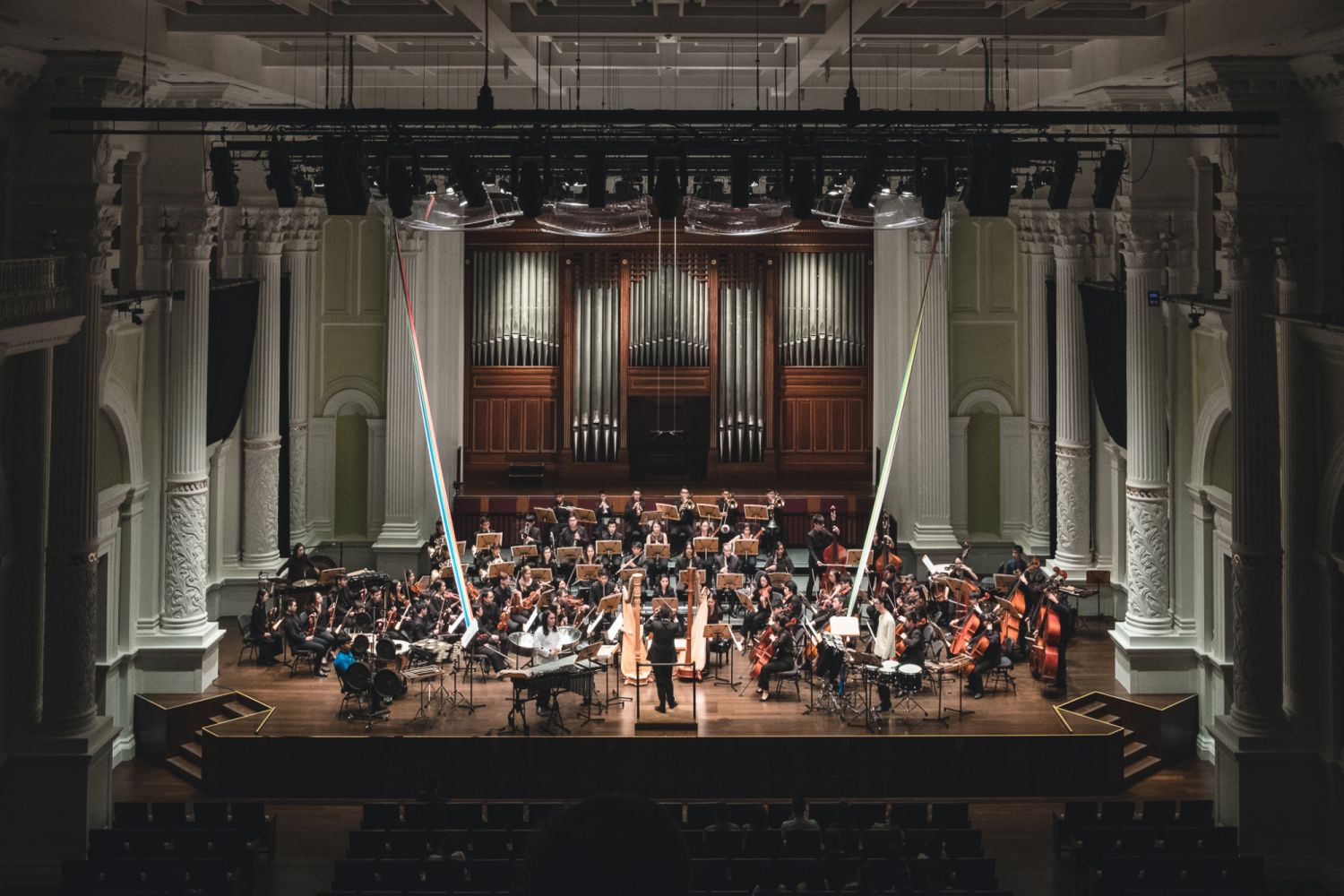Led by music director Alvin Arumugam, Musicians’ Initiative is on a mission to nurture the artistic growth of aspiring professional musicians to be among the world’s best
Alvin Arumugam first fell in love with music when he joined his secondary school band. The flautist later founded the school band at Catholic Junior College because they didn’t have one. But it wasn’t until he was serving his national service that Arumugam was bitten by the conducting bug, after leading his first Singapore Youth Festival competition at age 20.
“Conducting is not just about the music. It’s about enabling the musicians, understanding what they need and, above all, service to the music and community,” says the music director of Musicians’ Initiative. The Singapore-based non-profit orchestra seeks to make classical music more accessible through its innovative curation—of between six to eight concerts a year pre-pandemic—while providing young professional musicians with opportunities to perform in an orchestra.
Together with internationally acclaimed Belgian-American pianist Tedd Joselson, Musicians’ Initiative will present the world premiere of Manu Martin’s Lim Fantasy of Companionship for Piano and Orchestra at Flights of Fantasy, a classical concert celebrating Joselson’s platinum jubilee on June 8, at the Esplanade Concert Hall.
The masterful composition, which explores disruptive technologies at the intersection of technology and humanity in the form of robotics and artificial intelligence (AI), was first recorded at Abbey Road Studios by the London Symphony Orchestra in 2019, under the baton of renowned American conductor Arthur Fagen and with Joselson on the piano.
Flights of Fantasy will also feature two other piano concertos: Tchaikovsky’s Piano Concerto No 1 in B-flat minor and Brahms’ Piano Concerto No. 1 in D minor.
Arumugam, who is currently doing his second master’s degree in conducting at the Royal College of Music in London, shares more about the work of Musicians’ Initiative, and its upcoming concert.
Don't miss: SIFA 2022: Natalie Hennedige on How Rituals Will Shape This Year’s Arts Festival

Why does the Musicians’ Initiative see a need to create opportunities for talented young classical musicians to perform?
Alvin Arumugam (AA): With the introduction of higher tertiary music education at the Nanyang Academy of Fine Arts and Yong Siew Toh Conservatory of Music, we are starting to see many music graduates. There is a need to ensure that these graduates can pursue opportunities in Singapore and, more importantly, carve out a career in music making or peripheral activities. There is only one professional orchestra in Singapore, the Singapore Symphony Orchestra, with limited vacancies and highly competitive global auditions to fill these vacancies. As such, the community has to galvanise itself, innovate, ideate and create art alongside the system so that we retain talent in Singapore.
Musicians’ Initiative has a roster of seasoned professional musicians from the industry who double up as mentors for those who are studying music, or those who are fresh graduates. These younger ones will need as much orchestral experience as they can get, especially since many go on to auditions to win jobs or scholarships for further studies. In some ways, Musicians’ Initiative serves as a stepping stone but at the same time catering to those who return to Singapore or choose to remain here.
What potential do you see in the young Singaporean musicians of today?
AA: There is tremendous potential among the young Singaporean musicians. The pandemic has forced artists to rethink how we can reach our audiences and yet preserve the integrity and quality of good art. We have seen musicians merging social media and music. In actual fact, orchestras all over the world now have started to adopt a hybrid model of performance. Although there is still a huge emphasis on live performance, orchestras are now exploring innovative ways to reach audiences digitally. In many ways, the pandemic pushed the orchestral scene a decade ahead of its time, in my opinion.
The past decade we have seen several local musicians attain international recognition. They bring back to Singapore their collective experiences and raise the local standard of music making. Now, almost every week, there is a classical concert playing in a local hall. This is very different from the early 2000s when I was a student. There is a palpable buzz and a lot of excitement around collaboration and innovation within the arts and culture landscape.



